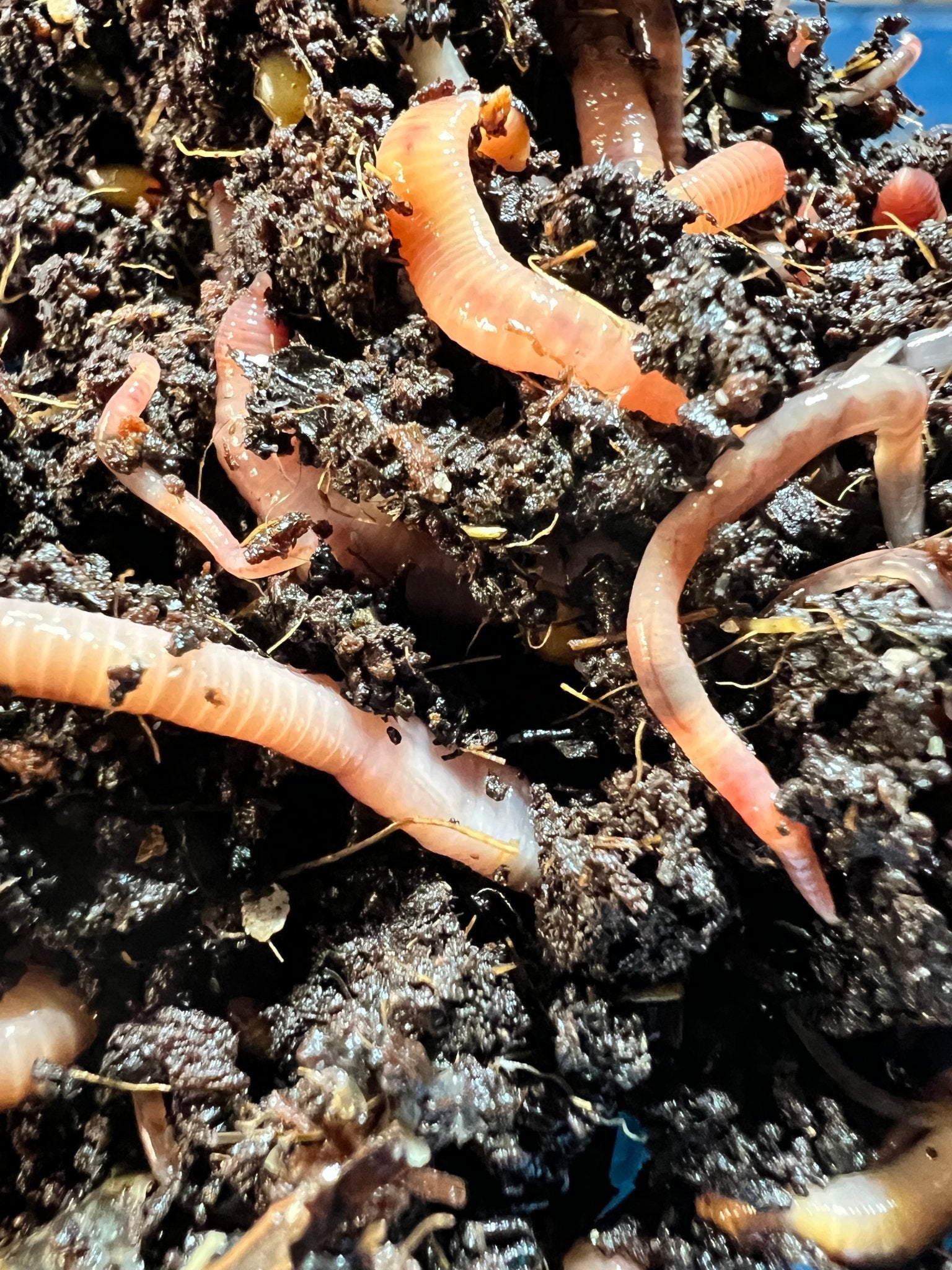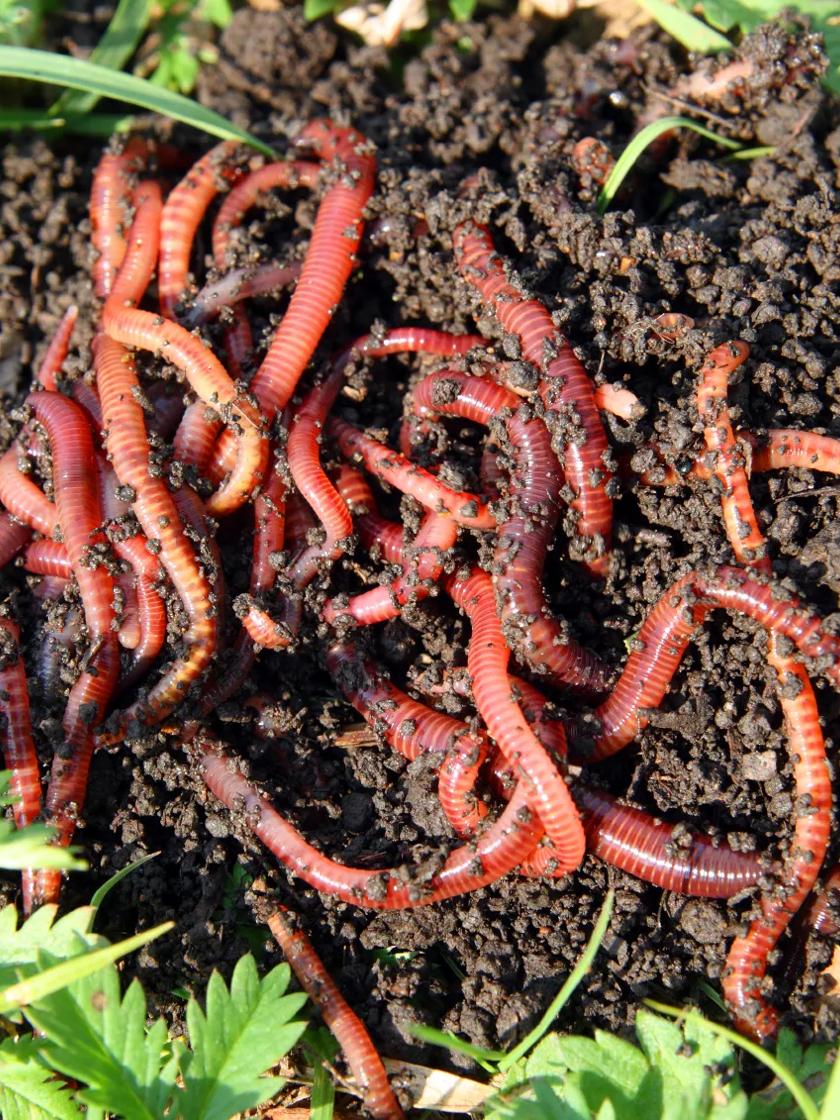Red Wigglers: The Unsung Heroes of Organic Waste Recycling
Red wigglers, or Eisenia fetida, offer as vital representatives in the natural waste reusing process, transforming discarded materials into useful vermicompost. As the globe significantly looks for services to combat waste accumulation and improve farming productivity, recognizing the duty of these worms ends up being crucial.
What Are Red Wigglers?
The amazing strength of red wigglers, scientifically called Eisenia fetida, highlights their vital function in organic waste recycling. These small, reddish-brown earthworms are typically located in decomposing raw material, such as compost heap and manure stacks. Lake Hickory Bait. Unlike other earthworm varieties, red wigglers thrive in nutrient-rich settings and are highly efficient at breaking down organic products, making them necessary for vermicomposting

Benefits of Composting With Worms
Composting with worms, specifically red wigglers, provides countless benefits that improve both waste monitoring and soil health. These worms effectively damage down organic waste, transforming it right into nutrient-rich vermicompost that enhances soil. This procedure increases decomposition, enabling a faster recycling of kitchen scraps and various other organic products contrasted to traditional composting approaches.
Additionally, the vermicompost generated by red wigglers is including advantageous bacteria, which assist enhance dirt structure, aeration, and wetness retention. This enhances the general health and wellness of plants, advertising strenuous development and raised returns in gardens and agricultural settings. Moreover, the use of worms in composting reduces the production of greenhouse gases, such as methane, adding to a more sustainable waste monitoring system.

Exactly How to Start Vermicomposting
Establishing a vermicomposting system is an uncomplicated process that can generate substantial benefits for both waste management and soil enrichment. To start, pick a suitable container, such as a plastic bin or wood box, with adequate ventilation openings to make certain correct air movement. The dimensions ought to preferably be about 2 feet by 3 feet, permitting adequate room for the worms to grow.
Following, prepare bedding material, which can be composed of shredded newspaper, cardboard, or coconut coir. This bedding needs to be moistened to create an appropriate habitat for the worms. As soon as the bed linen is in area, present red wigglers (Eisenia fetida) into the container, typically around one pound of worms for each square foot of area.
Adhering to the placement of worms, include organic waste, such as fruit and veggie scraps, coffee premises, and smashed eggshells. Prevent adding dairy products, meat, or oils, as these can produce smells and bring in bugs. Position the bin in a shaded, temperature-controlled area to preserve ideal problems for worm task. With these actions, you will properly launch a vermicomposting system that adds to lasting waste management and improves your soil.
Maintaining a Healthy And Balanced Worm Container
Aeration is critical also. Carefully mixing the bed linens and food scraps every couple of weeks prevents compaction and guarantees that all worms have access to oxygen. Furthermore, it is very important to feed the worms suitably. A balanced diet regimen of fruit and veggie scraps, coffee premises, and crushed eggshells need to be provided in small amounts to prevent overfeeding, which can bring about odors and bugs.
Temperature guideline is an additional vital element. Red wigglers prosper in a variety of 55 to 77 degrees Fahrenheit. If the bin ends up being as well hot or chilly, the worms may end up being stressed out - Lake Hickory Bait. Regularly check for signs of wellness, such as worm population development and the visibility of healthy spreadings. By faithfully taking care of these elements, one can maintain a robust and productive worm bin.
Impact on Lasting Living
The effective upkeep of a worm bin not only benefits the wellness of red wigglers however additionally contributes dramatically to lasting living practices. By recycling organic waste, such as kitchen area scraps and lawn debris, red wigglers help draw away considerable amounts of product from landfills. This decrease in waste not only reduces greenhouse gas discharges but likewise lessens the ecological worry related to waste monitoring.
Furthermore, the castings created by red wigglers function as a nutrient-rich natural plant food, boosting dirt health and wellness and promoting plant growth. This natural alternative to chemical plant foods sustains sustainable agriculture and gardening techniques, minimizing dependence on artificial inputs that can harm ecological communities. Additionally, worm composting promotes recognition of waste management, urging individuals and neighborhoods to adopt even more lasting habits.

Final Thought
In recap, red wigglers function as vital contributors to natural waste reusing with their efficient disintegration of organic materials. Their ability to create nutrient-rich vermicompost improves dirt health and wellness and sustains sustainable agricultural methods. By integrating vermicomposting into waste administration techniques, individuals and communities can significantly lower waste while promoting environmental sustainability. The function of Eisenia fetida in promoting healthy communities underscores the significance of these microorganisms in achieving lasting living and enhancing soil fertility.
Comments on “Use Lake Hickory Bait for Exceptional Lawn Health and Gorgeous Greens”